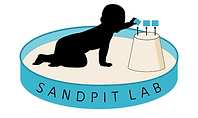top of page
Screen Time and Cognitive Development
While there is considerable work linking traditional screen media (TV viewing) to developmental outcomes, only limited research has examined the potential links between touchscreen devices (e.g. tablets, smartphones etc.) and cognitive development. Touchscreen technologies provide an intuitive and attractive source of stimulation for toddlers, enabling use when the motor system is still relatively immature. Our research aims to establish how content and context of use may influence children’s cognitive development from infancy to preschool.

"There is currently conflicting and unclear guidance around the impact of tablets and touchscreens use by our very youngest on their learning and development... This project engages directly with parents and practitioners to gather their views – giving us a much greater understanding of this important area as a result."
- Neil Leitch, Early Years Alliance Chief Executive (2018)


The UKRI Animating Minds Project aims to investigate the impact of children's television on the executive functioning of 3 and 6 year olds, using eye-tracking and fNIRS. The project will develop a framework for understanding how animation design elements impact children of different ages, which will be used to develop an AI tool that can predict a video clip's potential impact on children's neurocognition. Families will take part via online questionnaire or by visiting the Queen Mary Child Development Lab.


The Bedtime Boost Study investigates whether screen time has a direct impact on children’s sleep and attention. Families were asked to take part in a Parent Administered Screen Time Intervention (PASTI) with their 17-to-31 month old toddler. The project took place in family’s homes and at the Centre for Brain and Cognitive Development (the ‘Babylab’).

Project
The TABLET Project investigates the longitudinal associations between early touchscreen use across the first 3 years of life and a range of cognitive, brain and social developmental outcomes. Families around the UK participated via a series of online questionnaires or by visiting the Centre for Brain and Cognitive Development (the ‘BabyLab’) when their children were 12 months, 18 months and 3.5 years old.

Public Engagement
The Toddlers and Touchscreens Public Engagement project aimed to establish a dialogue with parents and early-years practitioners about the latest scientific evidence and guidelines, and learn about their thoughts, feelings and behaviours around touchscreen use. We ran a series of focus groups, and family activities, including science festivals and a science show.

bottom of page


